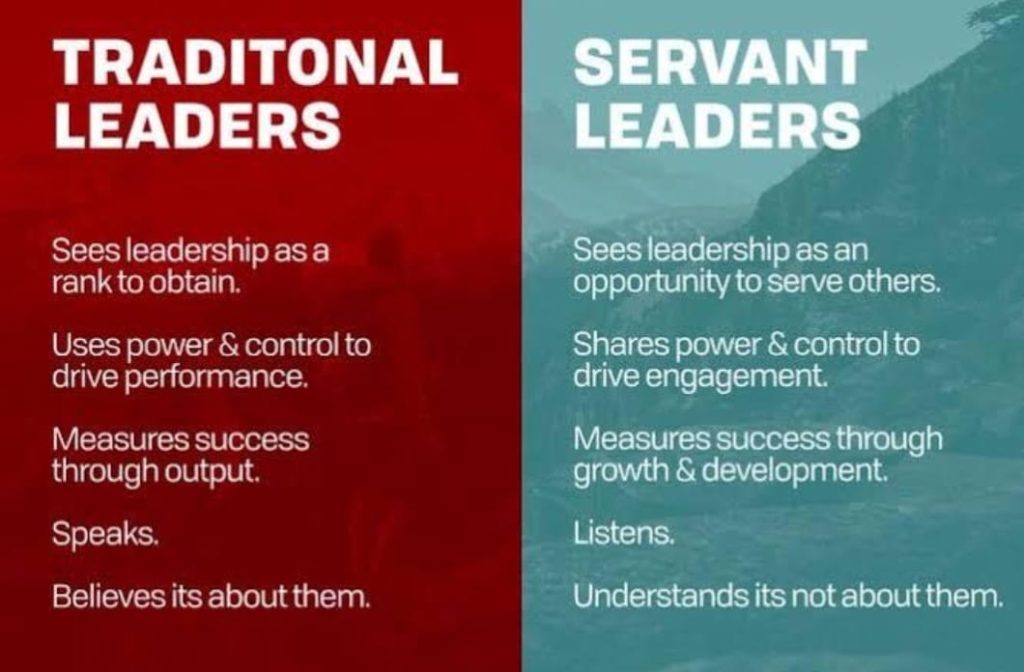The concept of servant leadership is centered around the idea that leaders prioritize the needs of their team or organization first, rather than focusing on their own power or authority. This leadership style, made popular by Robert K. Greenleaf, focuses on serving others to empower them and enable their growth. Here are the key qualities of a servant leader:

- Empathy
A servant leader actively listens and tries to understand the feelings and perspectives of others. This quality helps them connect with their team and support their needs effectively.
- Selflessness
Servant leaders place the well-being of their team ahead of their own. They are willing to step aside from their personal ambitions to ensure the growth and development of their team members.
3. Humility
They do not seek personal recognition or status, but instead, they value collaboration and acknowledge the contributions of others. Servant leaders admit their mistakes and learn from them.

4. Awareness
They have a keen sense of what is happening around them. This includes being aware of their own strengths and weaknesses as well as understanding the emotions, dynamics, and needs of the people they lead.
5. Stewardship
Servant leaders act as stewards of their organization and resources. They focus on long-term sustainability and take responsibility for the wellbeing of their team, ensuring that they are growing and thriving.
6. Commitment to the Growth of Others
They are committed to the personal and professional growth of every individual in their team. This includes providing mentorship, training, and development opportunities to help others achieve their potential.

7. Foresight
Servant leaders anticipate future needs and consequences. They use their intuition and wisdom to make decisions that benefit the long-term interests of the organization and its people.
8. Building Community
They foster a sense of belonging and purpose within their team or organization. By creating a collaborative environment, servant leaders help cultivate trust and cooperation among their members.
9. Listening
A key practice of servant leadership is active and attentive listening. Servant leaders take the time to hear others’ ideas, concerns, and feedback, and respond in a thoughtful manner.
10. Persuasion
Instead of using authority to force compliance, servant leaders rely on persuasion and influence to guide others. They engage in dialogue to achieve consensus rather than imposing decisions.

Benefits of Servant Leadership:
Higher Team Morale: Employees feel valued and are more motivated when their leader supports and cares for them.
Increased Engagement: When leaders empower their teams, individuals are more likely to take ownership of their work and contribute to the organization’s success.
Better Decision Making: Because servant leaders seek input from their team, they make more informed and thoughtful decisions.
Long-Term Success: This leadership style fosters trust and loyalty, which can lead to lasting relationships and sustained success for the organization.
Thanks for reading.